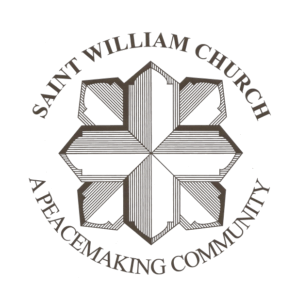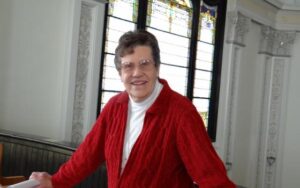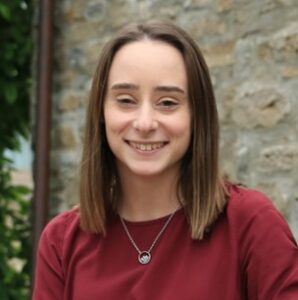Discerning the Diaconate at Notre Dame

My classmate Sophie McDevitt Funari and I are third year students in the Master of Divinity program at the University of Notre Dame, and on Wednesday, September 28, we had the joy of welcoming Anna Nussbaum Keating y Dr. Phyllis Zagano to campus for a discussion about women and the diaconate. Sophie and I started having conversations around this topic through our involvement with Discerning Deacons and courses like Feminist and Multicultural Theology with Sr. Cathy Hilkert and Orders and Ministry with Prof. David Fagerberg. We started to envision ways to bring this discussion to a larger audience on our campus and eventually partnered with the Theology Department and the Cushwa Center for the Study of American Catholicism who sponsored this event.
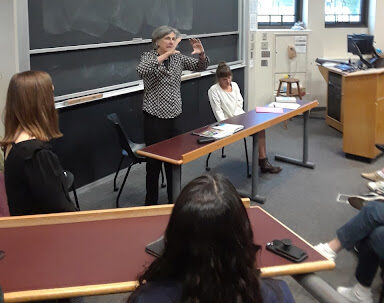
After months of prayerful planning, the day arrived. We had reserved a lecture hall on campus that fit 100 people, as we were unsure how many people would attend. I could not believe my eyes as the room slowly began to overflow. Our classmates helped us drag in chairs from across the hall, and still we ended up with attendees sitting on the floor, in the aisle, and spilling into the hallway. Undergraduates, grad students, professors, campus ministers, members of the South Bend community, and even some young children, all crowded in – I stopped counting when I reached 140! As the
event was about to begin, the energy in the room was buzzing. We began with prayer and silence, quieting our hearts and our minds as we prayed that this could be a moment for listening, learning, and dialogue.
Anna began by sharing her experiences working for the Church and explained why the possible ordination of women to the diaconate is such an urgent topic for discussion. Phyllis then spoke about the theological arguments for women’s ordination to the diaconate: women can and do image Christ, and they have already been ordained deacons in the historical Church. You can read more about the content of Phyllis and Anna’s speeches aquí in the Irish Rover, one of our student newspapers here on campus. After hearing from both Phyllis and Anna, we left 30 minutes for Q&A. Our panelists engaged a wide variety of questions: some challenged Phyllis’s theological arguments for women’s ordination to the diaconate while others asked how the current Synod might contribute to the conversation. Others sought to draw inspiration, asking the panelists how they keep up their hope and what spiritual practices they lean on to strengthen their work. Although we heard a wide variety of questions at the event, many questions went unanswered. We did not have nearly enough time to hear from everyone. For example, there seems to be a desire on campus to dive deeper into the theology of ordination. It is clear that there are so many people in our community that are hungering to join the global Church’s discernment around this issue. As I begin to envision what might be our next step on the path of discernment, three moments from the event stick out to me:
1.- In the midst of Phyllis answering a question, she said “I could be wrong. I recognize I could totally be wrong.”
As we envision what is next, I hope I can grow in humility like Phyllis who has poured her life’s work into researching women and the diaconate. We can never know for certain where God is leading us, but we can trust that the search for truth is still good and worthwhile.
2.- Anna emphasized that “your work has to remain rooted in Jesus. If it doesn’t, everything will crumble.”
While it might seem obvious, this is such a good reminder, especially when conversations surrounding this issue can become heated and emotionally charged. In order for us to hope and dream for what could be, we must have our feet firmly planted in the embodied God who is present in each living, breathing being who is joining our conversation.
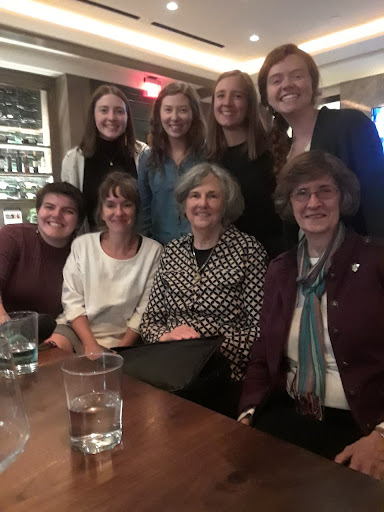
3.- At the end of the event, a first year undergraduate student came up to me and said “Wow, thank you, I didn’t know we got to talk about things like this at Notre Dame!”
This comment reminds me of the importance of remaining open to the Spirit. We ¿qué get to have conversations about women and the diaconate at Notre Dame and everywhere in the Church, so let’s do it! What a gift it is to get to join in this dialogue, participating in the work of discerning where the Spirit is leading our Church.

Jennifer Weirtel
Master of Divinity student at the University of Notre Dame
